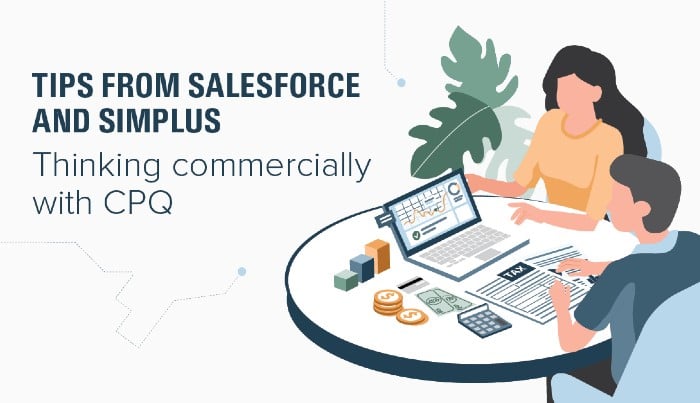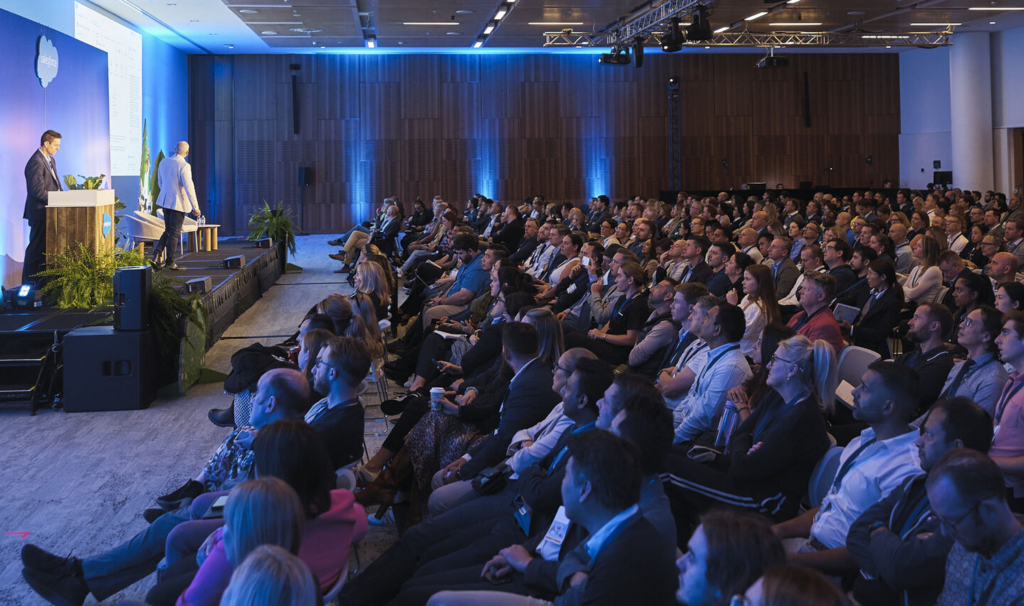With a limping economy and an uncertain future as a result of COVID 19, CFOs and finance teams of high-tech companies are focusing even more on saving time and money. But having a commercial mindset is also about knowing what the customer wants and what problems exist in a particular area of the business. And that means turning a profit is much more than a finance team’s job; it’s the responsibility of the entire business.
While it takes work to build a commercial mindset across your organisation, there are tools that can help all your teams work together to build profit and serve your customers even better. Our new ebook CPQ: A CFO’s new best friend is intended to provide businesses the confidence to do just that! We worked together with Ruban Stephens, Enterprise Account Executive – Salesforce CPQ & Billing at Salesforce, and our own Darren Parkinson, Finance Director, to explore how CPQ (short for ‘Configure, Price, Quote’) can break down team silos and unify the end-to-end sales process for the sales and finance.
Here, they provide a few additional tips on how CPQ can unify teams and help employees become more commercially minded.
Advice from Ruban Stephens – Enterprise Account Executive, Salesforce CPQ & Billing
The importance of CPQ and a unified quote-to-cash process
CPQ is part of a larger quote-to-cash transformation that benefits all departments, and it can have a profound effect on a business.
For example, most high-tech companies start with one product and one revenue model. As business begins to grow and scale, things start to change. When this happens, non-unified quote-to-cash systems struggle to keep up.
So what do you do? One common solution is ‘duct tape’. Maybe it’s using Excel to try to calculate complex pricing. Or you plug the holes with teams of people to manually manage the process. Sometimes the deal desk team grows faster than the actual sales team!
Although these fixes work for a short time, cracks begin to show and the quote-to-cash debt builds up until it reaches a tipping point – revenue leakage from incorrect or non-compliant quotes and pricing, customer experience suffers, operating margins start being eaten up, and business agility stalls.
The benefits of unifying your quote-to-cash process to drive a commercial mindset
When your entire team, including sales, IT, operations, finance and HR, operates on one platform, you can:
#1 Drive revenue growth with a scalable sales process that gives reps a deal-making canvas to work with customers on complex transactions with built-in workflows for approvals, guided-selling configuration tools, and one-click generation for quotes and approvals. Plus you can easily capture key performance indicators.
#2 Grow and nurture customer relationships by automating the customer lifecycle so every commercial touchpoint is streamlined.
#3 Scale your business operations by bringing together all your teams. This eliminates friction (and reduces tedious admin glitches) between sales and finance teams during handover and gives you increased transaction data accuracy.
Thoughts from Darren Parkinson – National Finance Director at Simplus
What CPQ can do for each team
Saving time and money is a high priority in business. COVID 19 has reinforced this view. CPQ isn’t just about bolstering one department. It allows all your teams to be aware of commercial priorities and achieve a unified mindset. Let’s break it down.
Finance and Sales:
A unified CPQ allows your sales and finance departments to analyse and share information in a symbiotic relationship. So Sales can focus on pleasing the customer, and Finance can maximise profits.
Operations:
To make life easier for your sales teams, operation teams need to coordinate the end-to-end process for your entire business. Salesforce CPQ uses Salesforce CRM to automate many of the back-office tasks that take up so much of a salesperson’s time. In many cases, I’ve seen companies achieve a one-third increase in productivity.
IT:
Salesforce CRM provides the platform that all the business data resides on. Salesforce CPQ is considered a native application. Data security and performance are improved because the business data is stored on the CRM platform and not an external server, and integration with other applications becomes easier for IT as well.
HR:
Salesforce CPQ, in conjunction with Salesforce HR, lets your disparate departments share information that benefits both your employees and the interdepartmental coordination it takes to manage and reward them for a job well done. And that boosts retention!
We all need to be accountable
CFOs and finance teams are obviously thinking commercially all the time but a lot of other line managers may not be doing the same. For your organisation to run at full capacity, everybody needs to understand how their role impacts commercial outcomes.
To identify unnecessary spending (and you’d be amazed how much waste there can be), you need to be able to deep dive into all outgoings. Cross-organisational accountability is a great way to achieve this. For example, one highly successful CFO recently gave an owner to
each and every line item. It’s a good commercial mindset. What this company is
doing is getting people to be critical of every cost. This shared responsibility is drastically reducing waste. CPQ is an ideal way to ensure all your teams are on a shared mission.
Want to know more about how Salesforce CPQ can help you save time and money? Download our new ebook CPQ: A CFO’s new best friend, today!
Follow Simplus Australia on LinkedIn to get the latest industry news, Salesforce updates, and topics that matter to you and your organisation.





